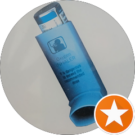Providing Quality Auto Repair in Mulliken
We care about your auto repair, and we treat your car as if it were our own.
Honest
Reliable
Trustworthy
Our Services
Oil Change
Tune-Up
Tires
Electrical
Brakes
Exhaust & Mufflers
Engine & Transmission
Heating & Cooling
Senter Family Auto Repair
About Us
Senter Family Auto Repair provides honest, reliable auto repair services for Mulliken and the surrounding communities. Our team of certified technicians take pride in delivering top-quality workmanship, whether it’s a routine oil change, brake service, or a major engine repair. We know how important your vehicle is to your daily life, which is why we go the extra mile to ensure every repair is done right the first time. Our commitment to integrity and excellence has made us a trusted name in auto repair, and we’re proud to serve the customers who rely on us to keep their vehicles running smoothly.
We believe that trust is the foundation of any great repair shop, and that’s why we’re dedicated to transparency, fair pricing, and clear communication. From the moment you walk through our doors, you’ll experience friendly service, expert advice, and a team that genuinely cares about your safety and satisfaction. Whether you need minor maintenance or major repairs, you can count on Senter Family Auto Repair to provide fast, dependable service that gets you back on the road with confidence




Schedule An Appointment
517-731-6496
Our Reputation is our Name
Frequently Asked Questions
My car is overheating, what do I do?
In the meantime, it is best for you to turn off any air conditioning and instead, turn on the heater. By doing this, it will help pull the heat away from the engine. Feel free to book an appointment to get this resolved!
How often should I change my oil?
If your vehicle uses synthetic oil, you should have it replaced every 6 months or every 5,000 miles.
Just as blood is essential for humans to live, oil is the lifeline of a vehicle. It is extremely important to replace your motor oil every 3,000-5,000 miles, depending on your vehicle and driving habits. But don’t stop at just oil changes – other fluids in your vehicle should be routinely checked and replaced throughout your car’s life. Rely on your car’s manufacturer guidelines to determine accurate timing/mileage of fluid changes.
How often should I change my vehicle fluids?
- Transmission Fluid
Transmission fluid is a liquid that acts as a lubricant for all of the moving parts inside your transmission. There are unique types of transmission fluid for your vehicle depending if it has an automatic or manual transmission. It is recommended to have your transmission fluid replaced every 30,000-60,000 miles, depending on the type of vehicle you drive.
- Coolant
Coolant helps to transfer heat and prevent engine damage caused by freezing or boiling. Also referred to as antifreeze, coolant keeps your radiator from freezing or overheating in extreme temperatures. Depending on the manufacturer of your automobile, the coolant should be changed every 30,000-60,000 miles. Reliable mechanics will check your antifreeze/coolant levels and top them off if necessary during routine oil changes.
- Brake Fluid
Brake fluid is used to transfer force into pressure, amplifying brake force. As we all know as drivers, effective brakes are very important! Be sure to have your brake fluid changed every 2-3 years or 24,000-36,000 miles … whichever comes first for your vehicle.
- Power Steering
Since the majority of cars today have Power Assisted Steering (PAS), power steering fluid is essential for smooth steering, which allows you to turn the wheels with ease. Power steering fluid should be replaced every 75,000-100,000 miles.
- Differential Fluid
Just because the differential is at the rear and under your vehicle, it is important to not forget about maintaining its effectiveness. The differential is designed to compensate for the difference in distance the inner and outer wheels travel when your vehicle makes a turn. Lubrication location and amounts depend on if your vehicle is rear-wheel or front-wheel drive. Differential fluid, essentially “gear oil,” needs to be changed every 25,000-30,000 miles.
- Transfer Case Fluid (AWD vehicles)
Transfer cases are only found on 4-wheel drive trucks, SUVs, and minivans. It is found at the rear of these types of vehicles and transfers energy from the engine back to the rear wheels. 4-Wheel and All-Wheel Drive vehicles should have their transfer case fluid replaced every 30,000 miles to keep the small gears and moving parts lubricated and working properly.
How often should I have my brakes checked?
How often should I rotate my tires?
The reason behind rotating tires is to maximize the life of your tires. All vehicle makes and models vary, it is recommended to rotate them every other oil change cycle.
How often should I change my spark plugs?
Spark plugs should be changed every 100,000 miles and they should be coupled with a fuel injection cleaning service. By performing these services, it cleans carbon build-up that will prevent future misfires.
My check engine light is on, what do I do?
If the check engine light is on, but NOT flashing, drive it in! We will diagnose it for you and have you on your way!
If the check engine light is on AND FLASHING, we recommend you do not operate the vehicle, as that is your vehicle telling you there is a misfire and we recommend you have it towed in to have it diagnosed.













































